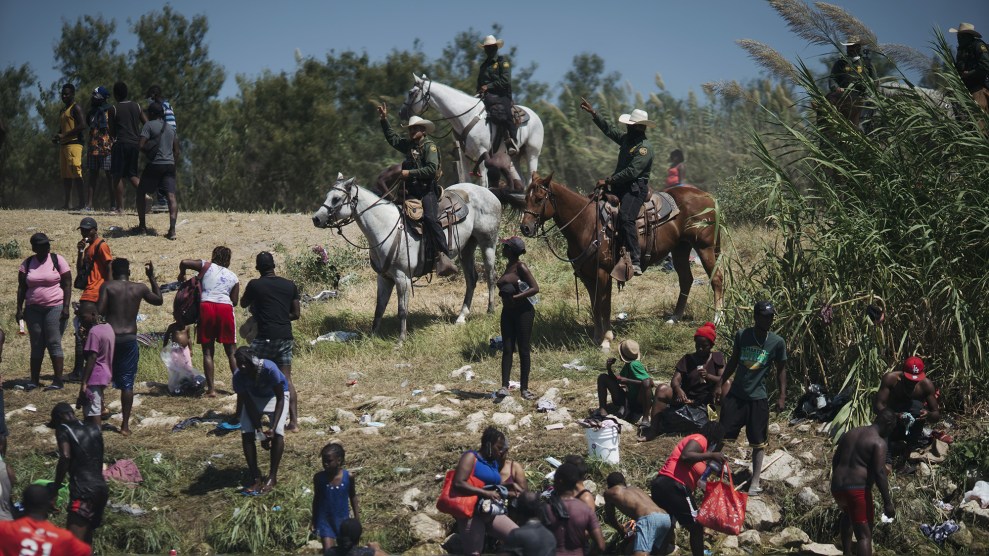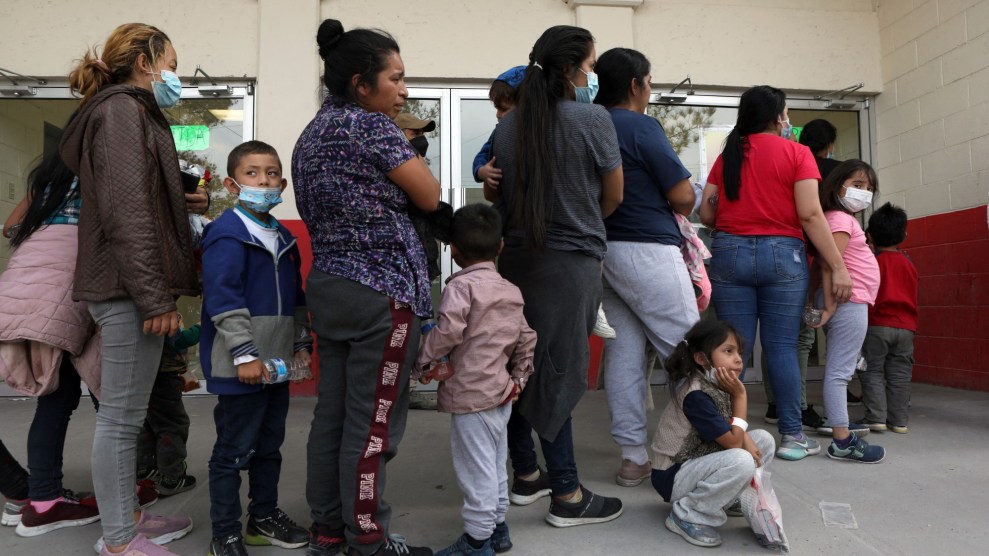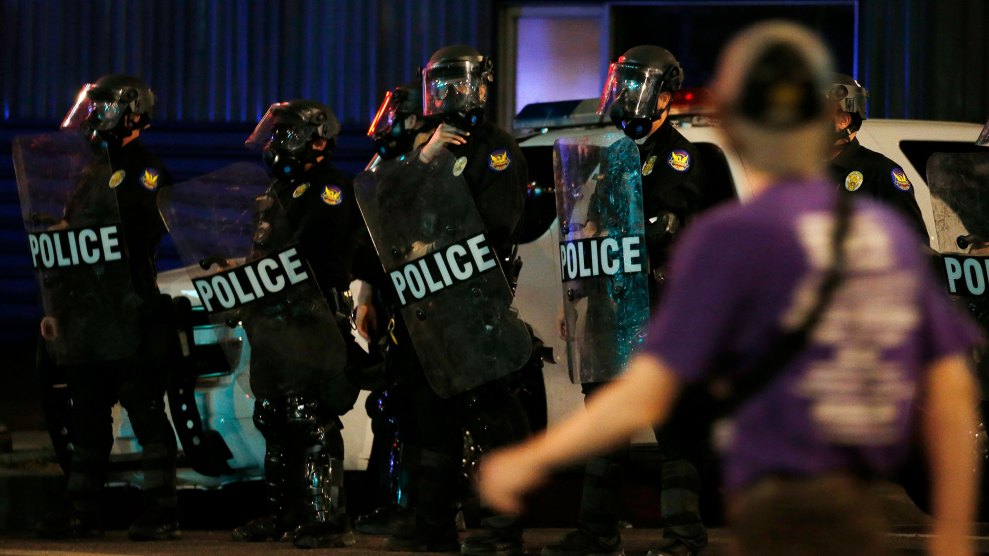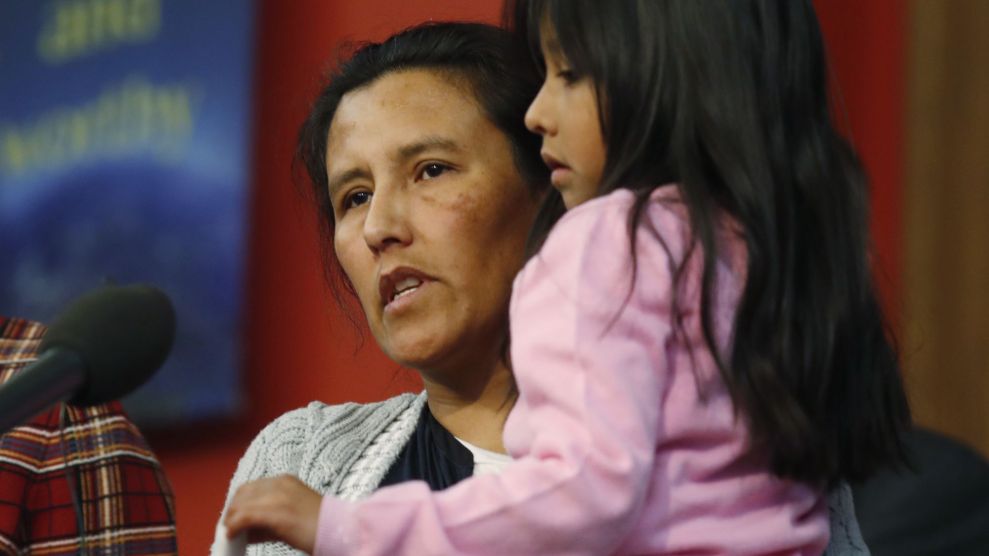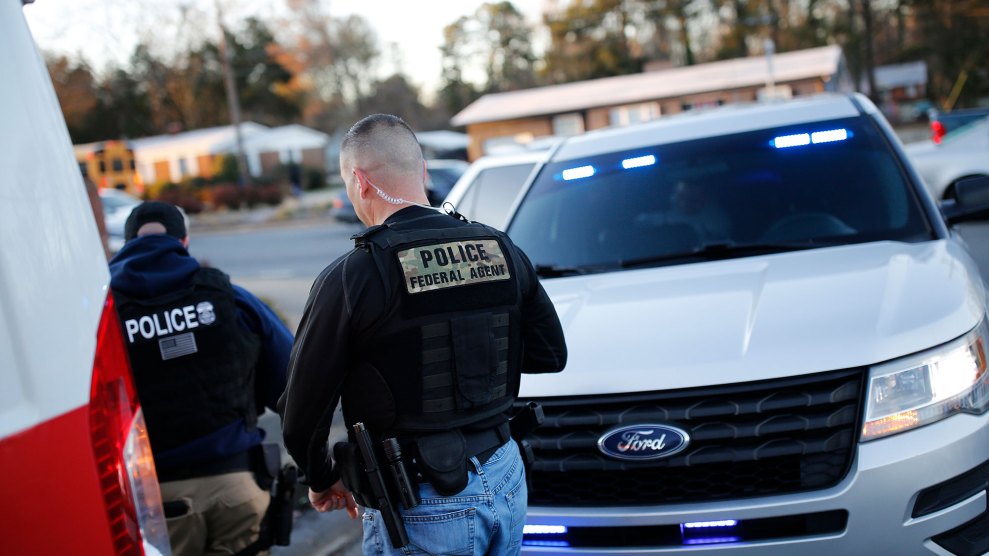
Eamon Queeney/The Washington Post via Getty Images
Starting this week, the number of places where immigration enforcement officials are not allowed to arrest people is growing. The Biden administration issued a new policy Wednesday that directs agents to stay away from playgrounds, domestic violence shelters, healthcare facilities, public demonstrations, disaster response centers, and other locations.
The new “protected areas” policy went into effect immediately and supersedes all previous guidance for what used to be called “sensitive locations.” For years now, Immigration and Customs Enforcement (ICE) agents had been instructed to avoid arresting people in places of worship, hospitals, courthouses, and schools. This, in part, is why immigrants facing deportation have sought refuge inside churches as part of the sanctuary movement.
This change may not seem like a huge deal, but it can have real, immediate impact for millions of undocumented people in the United States who live with fear and anxiety every day. While in theory sensitive locations remained protected during the Trump era, agents were seen in courthouses and hospitals, which increased the level of fear in undocumented communities and in households with mixed-status families. In fact, when the pandemic started spreading in the United States, reports of ICE agents at testing sites spread on social media, keeping some undocumented folks from getting tested. At a clinic in Los Angeles, a doctor told me his patients were “very afraid” and hesitant to seek treatment.
“When we conduct an enforcement action – whether it is an arrest, search, service of a subpoena, or other action – we need to consider many factors, including the location in which we are conducting the action and its impact on other people and broader societal interests,” Department of Homeland Security Secretary Alejandro Mayorkas wrote in the memo issuing the new policy. “For example, if we take an action at an emergency shelter, it is possible that noncitizens, including children, will be hesitant to visit the shelter and receive needed food and water, urgent medical attention, or other humanitarian care.”
Wednesday’s policy, which follows an April announcement that DHS would limit immigration arrests at or near courthouses, mandates that “to the fullest extent possible” immigration enforcement agents do not arrest people at or near the following protected areas:
- Places that provide social services “essential to people in need”: food banks, domestic violence shelters, facilities that serve disabled persons.
- Places where children gather: childcare centers, after-school programs, foster care facility, bus stops, and playgrounds.
- Medical treatment facilities: hospitals, doctor’s offices, COVID-19 vaccination and testing sites, mental health providers, community health centers, urgent care centers, places that serve pregnant people.
- Public demonstrations such as parades, demonstrations, or rallies.
- Places of worship or religious study including temporary structures dedicated to activities of faith.
- Places where disaster relief is being provided: emergency response shelters, places along evacuation routes or where family reunification is underway.
- Places where civil ceremonies occur: funeral, graveside ceremony, wedding.
This list is somewhat remarkable for its wide range of locations—including, crucially, protests, rallies, and parades. I wrote last year about how undocumented people ended up arrested at a Black Lives Matter protest, which then landed them in ICE deportation proceedings.
While there are, of course, exceptions in the policy—if there is an imminent risk of death or physical harm to a person, a threat to national security, a “hot pursuit” of a person seen crossing the border, or a safe alternative location doesn’t exist—it marks a significant change. (Enforcement agents also still have discretion and could contact a supervisor if they want an exception.)
The guidance is also notable as one additional step in a broader shift in immigration enforcement priorities within the United States—mostly to focus on people who are wanted for serious crimes. Last month, Mayorkas said that being in the country illegally is no longer enough to detain and deport a person, as he issued new rules that directed agents to focus on immigrants who are a threat to “national security, public safety, and border security.” And in a total reversal from the previous administration, Mayorkas’ DHS included this statement in the new detention and deportation guidelines: “There is also recognition that the majority of the more than 11 million undocumented or otherwise removable noncitizens in the United States have been contributing members of our communities across the country for years.”
The Biden administration also announced earlier this month that it would make changes to worksite immigration arrests. DHS issued an end to the so-called “ICE raids” that for decades have resulted in thousands of individuals paying the price for working without proper documentation, often with little punishment for the people who employed them. The new policy focuses instead on the “unscrupulous employers” who exploit undocumented workers.
Collectively, these new policies have been well-received by immigrant rights activists and advocacy organizations, though they come as Biden’s actions at the US-Mexico border seem to be sending a very different message. Human rights groups in particular have criticized the administration’s treatment of Haitian migrants in Texas, its continuation of a Trump-era border closure policy that has virtually shut down the asylum-seeking process at the border, and its restart of the cruel Remain in Mexico policy. While none of the new arrest guidances erase harsh moves at the border, they will make an immediate difference in people’s lives.
And yet, it’s important to remember that years ago the Obama administration, with Biden as its VP, promised a similar shift in enforcement priorities, saying it would deport “felons not families.” In the end, of course, Obama was dubbed “the Deporter in Chief,” removing well over a million people during his time in office—a large percentage of whom did not have criminal convictions. So, while some of these recent changes are promising, the future of immigrant rights under President Biden will still need more than words.

